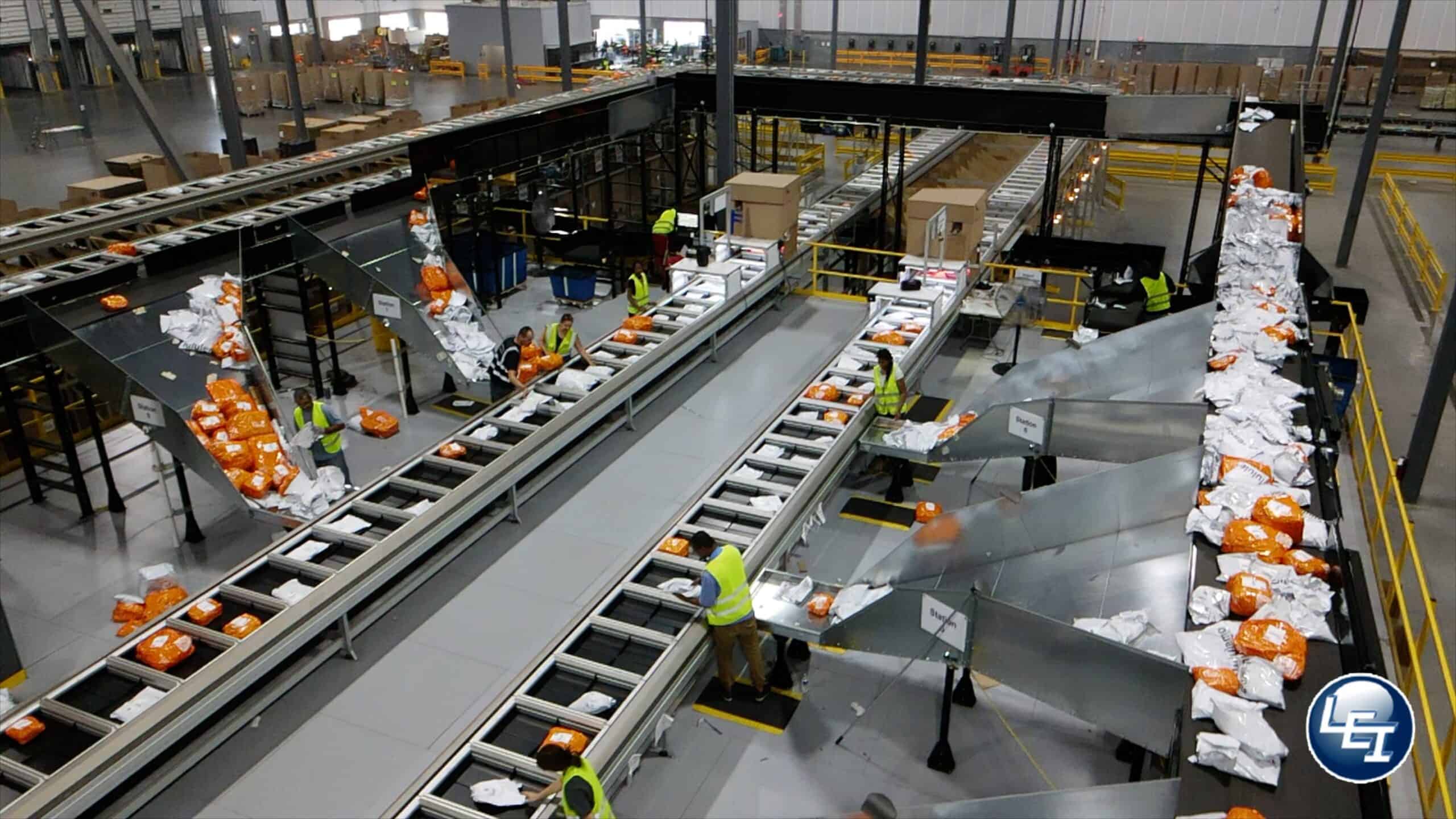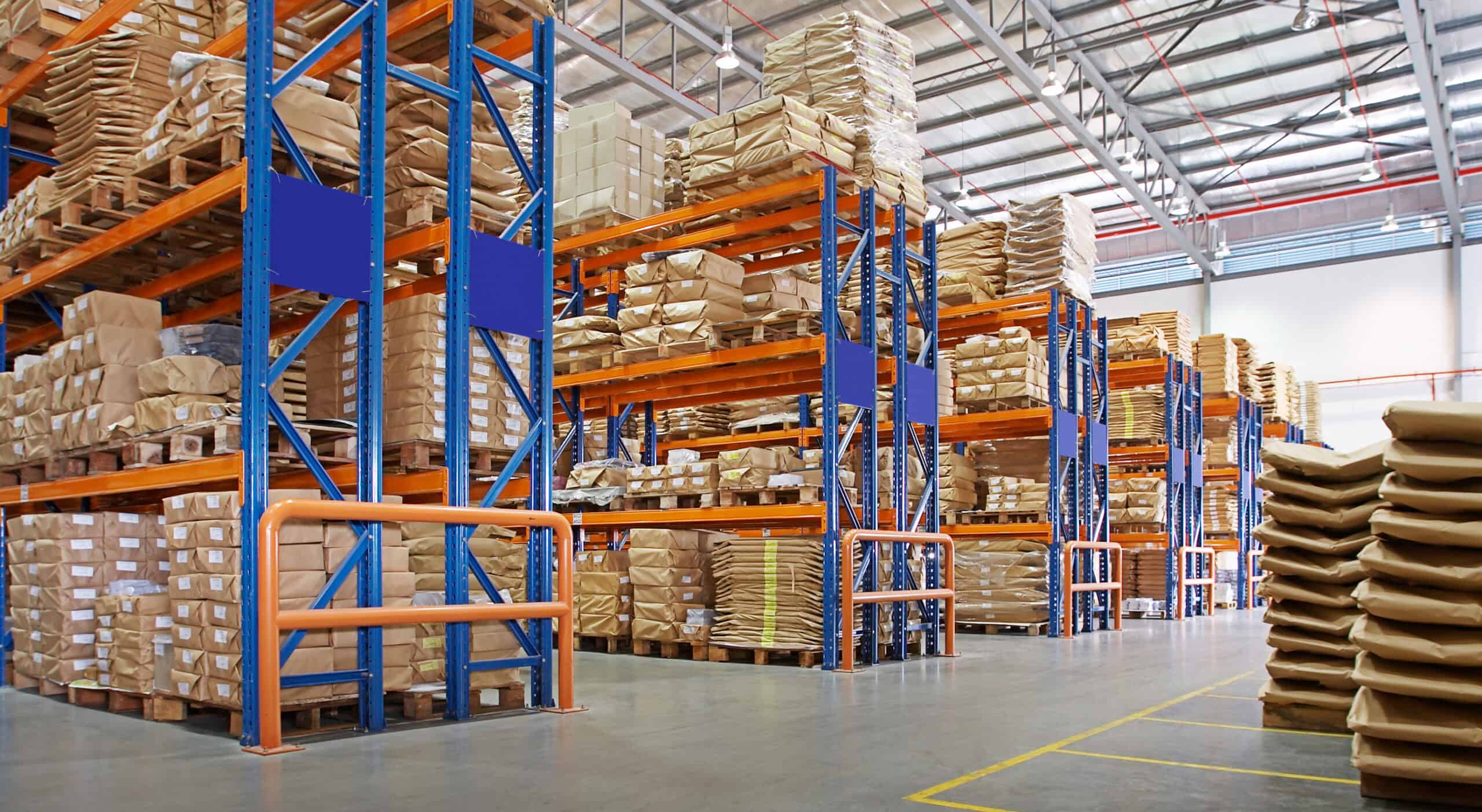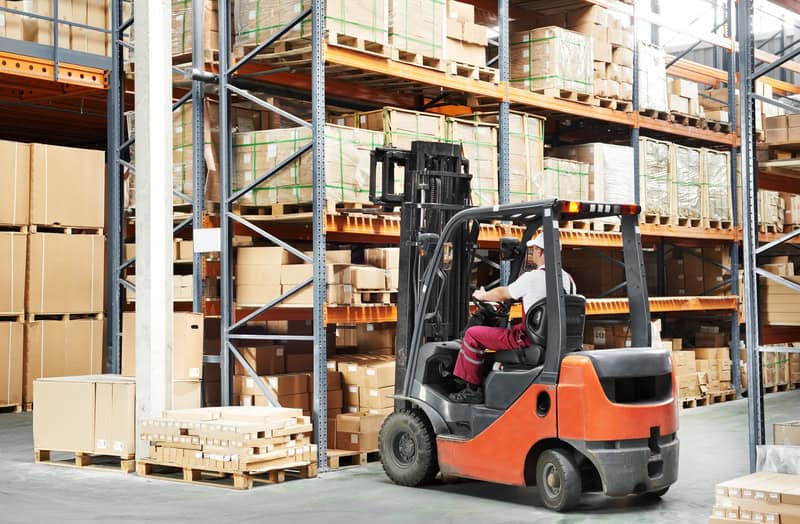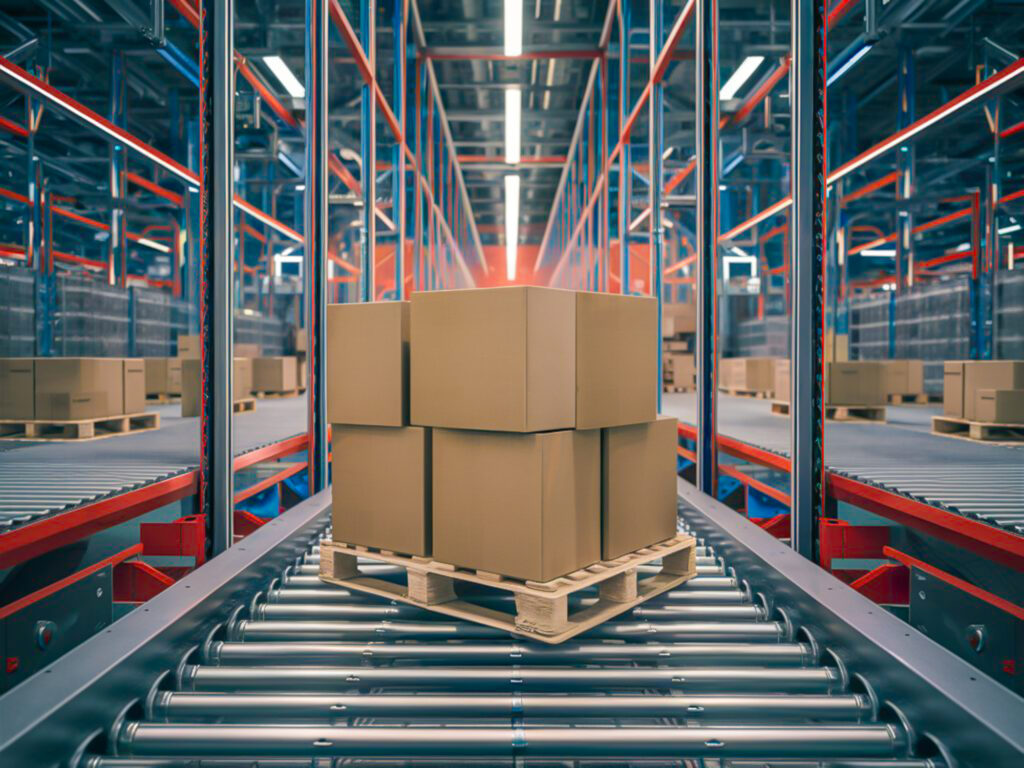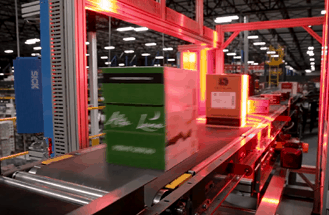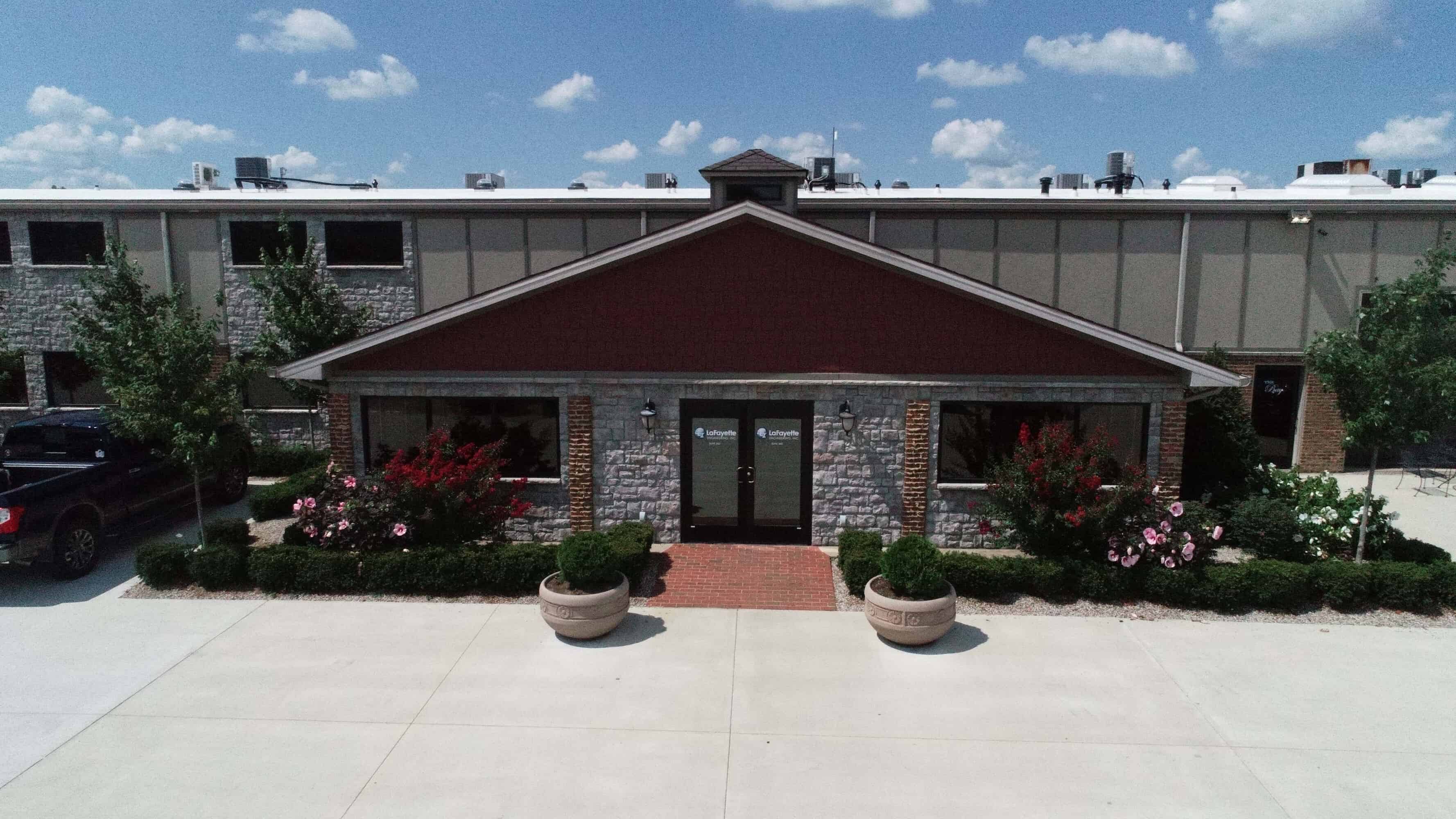Effective maintenance for warehouse conveyor systems is the cornerstone of operational excellence in modern distribution and fulfillment facilities. As the backbone of automated material handling operations, conveyor systems require strategic maintenance approaches that prevent costly downtime while extending equipment lifespan. Lafayette Engineering brings over 35 years of expertise in designing, implementing, and maintaining warehouse conveyor systems, helping businesses across the United States optimize their maintenance strategies for maximum operational efficiency.
Table of Contents
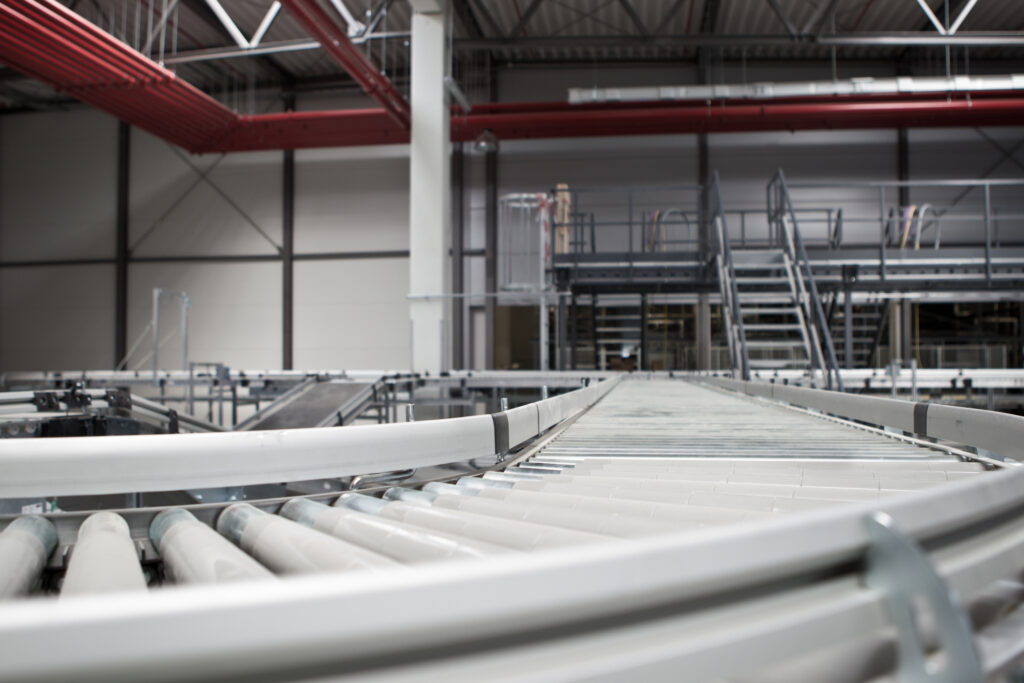
The Critical Importance of Maintenance for Warehouse Conveyor Systems
In today’s fast-paced distribution environment, warehouse conveyor systems operate continuously under demanding conditions. Proper maintenance for warehouse conveyor systems isn’t just about preventing breakdowns—it’s about ensuring consistent performance, maintaining safety standards, and protecting significant capital investments.
Understanding the Cost of Inadequate Maintenance
The financial impact of poor maintenance for warehouse conveyor systems extends far beyond immediate repair costs:
Unplanned Downtime Expenses: A single hour of conveyor system downtime can cost facilities between $5,000 and $50,000, depending on operation size and season. During peak periods, these costs can escalate dramatically as orders back up and customer service levels deteriorate.
Cascading Operational Impacts: When conveyor systems fail, the effects ripple throughout the entire operation. Manual processes must be implemented, temporary staffing may be required, and productivity plummets across all operational areas.
Safety and Compliance Risks: Poorly maintained conveyor systems pose significant safety hazards to workers. Beyond the human cost, workplace injuries result in workers’ compensation claims, OSHA citations, and potential facility shutdowns.
Accelerated Equipment Degradation: Neglected maintenance issues compound over time, leading to premature equipment replacement and substantially higher capital expenditures.
Lafayette Engineering’s comprehensive approach to maintenance for warehouse conveyor systems addresses these challenges proactively, ensuring reliable performance and protecting your operational investment.
Types of Maintenance for Warehouse Conveyor Systems
Effective maintenance strategies combine multiple approaches to create comprehensive protection for conveyor operations.
Preventive Maintenance: The Foundation of System Reliability
Preventive maintenance for warehouse conveyor systems involves scheduled activities designed to prevent equipment failures before they occur:
Regular Inspection Protocols
- Daily visual inspections of belts, rollers, and drive components
- Weekly lubrication of bearing points and drive mechanisms
- Monthly alignment checks ensuring optimal belt tracking
- Quarterly comprehensive system performance evaluations
Component Replacement Schedules
- Proactive replacement of wear components before failure
- Scheduled belt replacement based on operating hours and visual condition
- Bearing replacement following manufacturer recommendations
- Drive component refresh aligned with operational demands
Performance Monitoring
- Vibration analysis detecting early signs of mechanical issues
- Thermal imaging identifying overheating components
- Power consumption monitoring revealing inefficiencies
- Tracking system performance metrics against established baselines
Lafayette Engineering’s preventive maintenance programs are customized to each facility’s operational profile, ensuring optimal protection while minimizing maintenance costs.
Predictive Maintenance: Advanced Analytics for Optimal Performance
Modern maintenance for warehouse conveyor systems increasingly relies on predictive technologies that identify issues before they impact operations:
Sensor-Based Monitoring Systems
- Continuous vibration monitoring detecting bearing wear and misalignment
- Temperature sensors identifying overheating conditions
- Current monitoring revealing motor and drive issues
- Belt tracking sensors preventing costly derailments
Data Analytics and Machine Learning
- Historical performance analysis predicting component lifespans
- Pattern recognition identifying recurring issues
- Automated alert systems notifying maintenance teams of developing problems
- Optimization recommendations improving overall system efficiency
Condition-Based Maintenance Triggers
- Maintenance activities triggered by actual equipment condition rather than calendar schedules
- Resource optimization reducing unnecessary maintenance activities
- Extended component life through optimal replacement timing
- Improved maintenance planning and inventory management
Lafayette Engineering’s Conveyor Works software platform integrates predictive maintenance capabilities, providing real-time insights that optimize maintenance for warehouse conveyor systems.
Corrective Maintenance: Rapid Response When Issues Arise
Despite the best preventive efforts, unexpected issues occasionally occur. Effective corrective maintenance for warehouse conveyor systems minimizes downtime and prevents secondary damage:
Emergency Response Protocols
- 24/7 technical support for critical system failures
- Rapid diagnosis procedures identifying root causes quickly
- Emergency parts availability for immediate repairs
- Temporary solutions maintaining operations during extended repairs
Root Cause Analysis
- Comprehensive investigation preventing recurring failures
- Documentation improving future maintenance strategies
- System modifications eliminating chronic problem areas
- Training updates addressing identified knowledge gaps
System Optimization During Repairs
- Upgrades and improvements implemented during maintenance windows
- Performance enhancements integrated with corrective actions
- Technology refresh opportunities during major repairs
- Capacity improvements addressing operational growth
Key Components Requiring Specialized Maintenance
Different elements of warehouse conveyor systems require specific maintenance approaches tailored to their operational characteristics and wear patterns.
Belt and Chain Maintenance
The moving elements of conveyor systems experience the most wear and require focused maintenance attention:
Belt Conveyor Maintenance
- Regular tension adjustments preventing premature wear and tracking issues
- Splice inspection and repair maintaining belt integrity
- Cleaning protocols removing debris that causes accelerated wear
- Environmental protection preventing chemical and thermal damage
Chain Conveyor Maintenance
- Lubrication programs ensuring smooth operation and extending chain life
- Wear measurement monitoring preventing catastrophic failures
- Alignment verification maintaining proper chain tracking
- Pin and bushing inspection identifying replacement needs
Roller and Idler Maintenance
- Bearing lubrication following manufacturer specifications
- Replacement scheduling based on operating hours and environment
- Alignment checks ensuring even load distribution
- Cleaning procedures removing accumulated debris
Drive System Maintenance
The power transmission components of conveyor systems require specialized maintenance for warehouse conveyor systems:
Motor and Gearbox Service
- Regular oil changes maintaining proper lubrication
- Vibration analysis detecting early signs of wear
- Thermal monitoring preventing overheating damage
- Electrical connection inspection ensuring reliable power transmission
Drive Belt and Coupling Maintenance
- Tension adjustment preventing slippage and premature wear
- Alignment verification reducing stress on connected components
- Replacement scheduling based on visual condition and performance metrics
- Environmental protection preventing contamination damage
Variable Frequency Drive (VFD) Maintenance
- Filter replacement maintaining proper cooling
- Connection inspection preventing electrical failures
- Programming verification ensuring optimal operation
- Heat sink cleaning maintaining thermal performance
Control System Maintenance
The intelligence behind modern conveyor systems requires ongoing attention to maintain peak performance:
PLC and Control Panel Service
- Regular backup procedures protecting critical programming
- Connection inspection preventing communication failures
- Cooling system maintenance preventing overheating
- Software updates incorporating performance improvements
Sensor and Safety System Maintenance
- Regular calibration ensuring accurate operation
- Cleaning procedures maintaining proper function
- Connection verification preventing false alarms
- Replacement scheduling for photo eyes and proximity sensors
Network and Communication System Maintenance
- Cable inspection preventing communication interruptions
- Network performance monitoring identifying bandwidth issues
- Security updates protecting against cyber threats
- Backup system verification ensuring redundancy
Lafayette Engineering’s Comprehensive Maintenance Programs
Lafayette Engineering offers customized maintenance for warehouse conveyor systems that address the unique requirements of each facility and operation.
Planned Maintenance Programs
Our structured approach to maintenance for warehouse conveyor systems ensures comprehensive coverage while optimizing resource utilization:
Customized Maintenance Schedules
- Facility-specific programs based on operational profiles
- Seasonal adjustments accounting for peak operational periods
- Component-specific schedules optimizing replacement timing
- Integration with facility maintenance windows minimizing disruption
Comprehensive Service Packages
- All-inclusive programs covering labor, parts, and emergency response
- Flexible service levels matching operational requirements and budgets
- Performance guarantees ensuring maintained productivity levels
- Regular program reviews optimizing service delivery
Documentation and Reporting
- Detailed maintenance records supporting warranty claims and audits
- Performance trending identifying optimization opportunities
- Cost tracking enabling accurate budgeting and planning
- Compliance documentation meeting regulatory requirements
Emergency Support Services
When unexpected issues arise, Lafayette Engineering’s emergency support minimizes downtime and operational impact:
24/7 Technical Support
- Immediate phone support for urgent technical issues
- Remote diagnostic capabilities identifying problems quickly
- Emergency dispatch services for critical failures
- Temporary solutions maintaining operations during repairs
Rapid Parts Availability
- Strategic inventory locations reducing delivery times
- Emergency parts programs for critical components
- Cross-referencing capabilities finding suitable alternatives
- Expedited shipping for urgent requirements
Expert Technician Network
- Nationwide coverage ensuring rapid on-site response
- Factory-trained technicians providing expert service
- Specialized expertise for complex system issues
- Safety-certified professionals meeting all workplace requirements
Performance Optimization Services
Beyond basic maintenance, Lafayette Engineering helps optimize conveyor system performance through advanced services:
System Performance Audits
- Comprehensive evaluation of system efficiency and reliability
- Benchmarking against industry standards and best practices
- Identification of improvement opportunities
- ROI analysis for recommended upgrades
Technology Upgrades
- Modernization programs extending system life
- Control system updates improving functionality
- Energy efficiency improvements reducing operating costs
- Capacity enhancements supporting business growth
Training and Knowledge Transfer
- Comprehensive training programs for facility maintenance staff
- Best practices documentation improving internal capabilities
- Troubleshooting guides enabling rapid issue resolution
- Ongoing education keeping staff current with technology advances
Developing an Effective Maintenance Strategy
Creating a successful maintenance program for warehouse conveyor systems requires careful planning and ongoing optimization.
Assessment and Planning
The foundation of effective maintenance for warehouse conveyor systems begins with thorough assessment:
Current State Analysis
- Comprehensive evaluation of existing equipment condition
- Documentation of historical maintenance activities and costs
- Identification of recurring issues and failure patterns
- Assessment of current maintenance capabilities and resources
Risk Assessment and Prioritization
- Evaluation of failure consequences for different system components
- Prioritization of maintenance activities based on operational impact
- Development of contingency plans for critical system failures
- Resource allocation optimization balancing cost and risk
Goal Setting and Metrics
- Establishment of clear performance targets for system reliability
- Definition of key performance indicators (KPIs) for maintenance effectiveness
- Cost targets balancing maintenance investment with operational benefits
- Timeline development for maintenance program implementation
Implementation and Execution
Successful maintenance for warehouse conveyor systems requires systematic implementation:
Staff Training and Development
- Comprehensive training programs for internal maintenance teams
- Certification programs ensuring proper skill levels
- Ongoing education keeping pace with technology advances
- Cross-training initiatives providing operational flexibility
Documentation and Procedures
- Detailed maintenance procedures for all system components
- Standardized inspection checklists ensuring consistency
- Troubleshooting guides enabling rapid issue resolution
- Change management procedures maintaining program integrity
Technology Integration
- Implementation of maintenance management systems
- Integration with existing facility management platforms
- Mobile technology enabling real-time maintenance activities
- Analytics platforms supporting data-driven decision making
Continuous Improvement
Effective maintenance programs evolve continuously to optimize performance and cost-effectiveness:
Performance Monitoring and Analysis
- Regular review of maintenance KPIs and trends
- Cost-benefit analysis of maintenance activities
- Identification of optimization opportunities
- Benchmarking against industry standards and best practices
Program Refinement
- Regular updates to maintenance schedules and procedures
- Technology upgrades improving maintenance efficiency
- Process improvements reducing costs and downtime
- Vendor evaluation ensuring optimal service delivery
Future Planning
- Long-term equipment replacement planning
- Technology roadmap development
- Capacity planning supporting business growth
- Budget planning ensuring adequate maintenance resources
Industry-Specific Maintenance Considerations
Different industries present unique challenges for maintenance for warehouse conveyor systems, requiring specialized approaches:
E-commerce and Retail Distribution
High-volume, variable-demand operations require flexible maintenance strategies:
- Peak season preparation ensuring maximum system availability
- Rapid changeover capabilities supporting diverse product handling
- Scalable maintenance programs accommodating seasonal staffing
- Express service options minimizing impact during critical periods
Food and Beverage Operations
Sanitary environments and regulatory compliance add complexity to maintenance activities:
- Washdown-rated equipment requiring specialized maintenance procedures
- FDA and USDA compliance considerations
- Temperature and humidity control system maintenance
- Contamination prevention protocols during maintenance activities
Automotive and Manufacturing
Heavy-duty applications and precision requirements demand robust maintenance approaches:
- High-capacity system maintenance supporting heavy loads
- Precision alignment requirements maintaining quality standards
- Integration with manufacturing processes minimizing production disruption
- Specialized tooling and equipment for maintenance activities
Third-Party Logistics (3PL)
Multi-client facilities require flexible maintenance approaches:
- Client-specific requirements and service level agreements
- Cost allocation systems supporting accurate billing
- Flexible scheduling accommodating diverse operational requirements
- Documentation supporting client reporting and compliance
Cost Management and ROI Optimization
Effective maintenance for warehouse conveyor systems balances cost control with operational reliability, delivering measurable return on investment.
Understanding Total Cost of Ownership
Comprehensive cost analysis considers all aspects of conveyor system maintenance:
Direct Maintenance Costs
- Labor costs for preventive and corrective maintenance activities
- Parts and materials costs for routine and emergency repairs
- Contract service costs for specialized maintenance activities
- Equipment and tooling costs for maintenance operations
Indirect Operational Costs
- Downtime costs during maintenance activities and unplanned failures
- Productivity impacts from reduced system performance
- Safety costs from accidents and incidents
- Energy costs from inefficient system operation
Long-term Strategic Costs
- Equipment replacement costs from premature failure
- Upgrade costs for obsolete systems and components
- Training costs for maintenance staff development
- Opportunity costs from delayed facility expansion or improvement
ROI Optimization Strategies
Lafayette Engineering helps clients optimize return on investment for maintenance programs:
Performance-Based Contracting
- Service agreements tied to system performance metrics
- Guaranteed uptime levels with penalty clauses for underperformance
- Cost-sharing arrangements aligning vendor and client interests
- Continuous improvement requirements driving ongoing optimization
Technology Investment
- Predictive maintenance systems reducing unexpected failures
- Energy-efficient components reducing operating costs
- Automation upgrades reducing maintenance labor requirements
- Integration platforms improving maintenance efficiency
Resource Optimization
- Right-sizing maintenance programs to operational requirements
- Strategic inventory management reducing carrying costs
- Cross-training initiatives improving resource flexibility
- Vendor consolidation reducing administrative overhead
Emerging Trends in Conveyor System Maintenance
The future of maintenance for warehouse conveyor systems is being shaped by advancing technology and changing operational requirements.
Digital Transformation
Technology is revolutionizing how maintenance for warehouse conveyor systems is planned, executed, and optimized:
Internet of Things (IoT) Integration
- Extensive sensor networks providing real-time system health monitoring
- Automated alert systems notifying maintenance teams of developing issues
- Data analytics platforms identifying optimization opportunities
- Remote monitoring capabilities reducing on-site inspection requirements
Artificial Intelligence and Machine Learning
- Predictive algorithms forecasting component failures with increasing accuracy
- Optimization engines improving maintenance scheduling and resource allocation
- Pattern recognition systems identifying root causes of recurring issues
- Automated decision-making systems optimizing maintenance activities
Digital Twin Technology
- Virtual representations of physical systems enabling advanced analysis
- Simulation capabilities testing maintenance strategies before implementation
- Training platforms providing safe learning environments
- Optimization tools identifying performance improvement opportunities
Sustainability and Environmental Considerations
Environmental responsibility is becoming increasingly important in maintenance planning:
Energy Efficiency Focus
- Maintenance practices optimizing energy consumption
- Component upgrades improving overall system efficiency
- Environmental monitoring reducing waste and emissions
- Sustainable materials and practices in maintenance activities
Circular Economy Principles
- Component refurbishment and remanufacturing programs
- Recycling initiatives reducing waste disposal costs
- Life extension strategies maximizing equipment value
- Sustainable supply chain practices for maintenance materials
Workforce Development
The evolving maintenance landscape requires new skills and capabilities:
Advanced Technical Skills
- Training programs for emerging maintenance technologies
- Certification programs ensuring competency with new systems
- Cross-training initiatives providing operational flexibility
- Continuous learning platforms keeping pace with technology advances
Data Analytics Capabilities
- Training in maintenance data analysis and interpretation
- Statistical analysis skills for predictive maintenance programs
- Performance optimization techniques using data insights
- Report generation and presentation skills for management communication
Choosing the Right Maintenance Partner
Selecting the appropriate partner for maintenance for warehouse conveyor systems is crucial for long-term operational success.
Evaluation Criteria
Key factors to consider when evaluating maintenance service providers:
Technical Expertise and Experience
- Proven track record with similar systems and applications
- Factory training and certification programs
- Technical capabilities for complex troubleshooting and repair
- Innovation and continuous improvement focus
Service Capabilities and Coverage
- Geographic coverage matching facility locations
- Response time guarantees for emergency situations
- Service level agreements aligned with operational requirements
- Scalability to accommodate business growth
Technology and Innovation
- Investment in advanced diagnostic and maintenance technologies
- Integration capabilities with existing facility systems
- Commitment to ongoing technology development
- Training and support for new technology implementation
Financial Stability and Partnership Approach
- Strong financial position ensuring long-term service availability
- Flexible contracting options meeting diverse requirements
- Performance guarantees and risk-sharing arrangements
- Collaborative approach to continuous improvement
Lafayette Engineering’s Competitive Advantages
Lafayette Engineering offers unique advantages as a maintenance partner for warehouse conveyor systems:
Comprehensive Expertise
- Over 35 years of experience in conveyor system design and maintenance
- Factory-trained technicians with specialized knowledge of our systems
- Broad industry experience across diverse applications and environments
- Continuous investment in training and technology development
Nationwide Service Network
- Coast-to-coast coverage with local service capabilities
- Strategic parts inventory locations reducing response times
- Consistent service quality across all locations
- Local expertise with national resources and support
Integrated Solutions Approach
- Seamless integration between maintenance services and system design
- Optimization opportunities identified through comprehensive system knowledge
- Technology upgrade paths aligned with maintenance planning
- Total cost of ownership optimization through integrated planning
Customer-Centric Service Model
- Customized maintenance programs tailored to specific operational requirements
- Flexible service options accommodating diverse budgets and needs
- Performance guarantees ensuring maintained productivity levels
- Long-term partnership focus supporting ongoing operational success
Taking Action: Implementing Effective Conveyor Maintenance
The importance of proper maintenance for warehouse conveyor systems cannot be overstated. In today’s competitive environment, operational reliability directly impacts customer satisfaction, profitability, and business growth.
Getting Started
Implementing effective maintenance for warehouse conveyor systems begins with assessment and planning:
- Comprehensive System Evaluation: Document current equipment condition and maintenance practices
- Risk Assessment: Identify critical failure points and their operational impact
- Goal Setting: Establish clear performance targets and success metrics
- Resource Planning: Determine optimal resource allocation for maintenance activities
- Partner Selection: Choose experienced service providers aligned with operational requirements
Next Steps with Lafayette Engineering
Lafayette Engineering is ready to help optimize your maintenance for warehouse conveyor systems:
Comprehensive Assessment Services
- Detailed evaluation of current system condition and maintenance practices
- Identification of immediate improvement opportunities
- Development of customized maintenance strategies
- ROI analysis for recommended improvements
Flexible Service Options
- Full-service maintenance programs covering all aspects of system care
- Supplemental services supporting internal maintenance teams
- Emergency support services providing peace of mind
- Training programs developing internal maintenance capabilities
Technology Integration
- Implementation of advanced monitoring and diagnostic systems
- Integration with existing facility management platforms
- Optimization of maintenance scheduling and resource allocation
- Ongoing technology updates maintaining competitive advantage
Contact Lafayette Engineering Today
Don’t wait for system failures to impact your operations. Contact Lafayette Engineering to discuss how our comprehensive maintenance for warehouse conveyor systems can protect your investment and optimize performance:
Phone: (844) 845-7580
Website: www.lafayette-engineering.com
Services: Maintenance, Support, and Optimization
Our team of experts is ready to evaluate your current maintenance practices and develop customized solutions that ensure reliable performance, minimize downtime, and protect your operational investment.
About Lafayette Engineering
Since 1989, Lafayette Engineering has been the trusted partner for businesses seeking reliable, efficient warehouse conveyor systems and comprehensive maintenance services. Our expertise in system design, implementation, and ongoing support has helped hundreds of clients across the United States optimize their material handling operations.
With headquarters in Danville, Kentucky, and service locations throughout the country, Lafayette Engineering provides nationwide maintenance for warehouse conveyor systems with local expertise and responsiveness. From routine preventive maintenance to emergency repairs and system optimization, we deliver the expertise and service that keeps your operations running smoothly.
Visit lafayette-engineering.com to learn more about our comprehensive maintenance services and discover how we can help protect and optimize your conveyor system investment.

